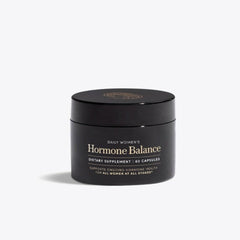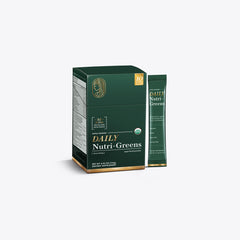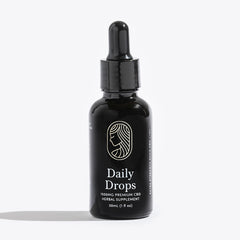In a world where every CBD company is fighting for your attention, it’s important to take a moment to assess the quality of their products. How many times have you planned on making a purchase and compared similar products before making a decision? It’s easy to read other people’s reviews and opinions to gather a good understanding of worth based on anecdotal evidence and experiences, but you also compare prices, aesthetics, and – on a deeper level – maybe you consider the origin of production and other ethical standards. Comparing CBD is not the same as comparing the specs of the latest smartphone. So, how do you know you’re paying for the best value and quality? How can you trust that you’re getting what is advertised?
With so many brands in an emerging market, finding the best quality can make a difference in the success of your CBD journey. With consumables and supplements, knowing exactly what is in your product is necessary and imperative. Your CBD product can have great reviews and enticing marketing, but the best way to study your options and ensure a trustworthy product is to verify the quality with Certificate of Analysis data (COA).
What Is A COA?
 A Certificate of Analysis is an official document that shows the results of scientific tests on a product. These documents can be applied to food products, chemicals, or pharmaceuticals as part of standard procedures to verify that a regulated product meets its product specifications.
A Certificate of Analysis is an official document that shows the results of scientific tests on a product. These documents can be applied to food products, chemicals, or pharmaceuticals as part of standard procedures to verify that a regulated product meets its product specifications.
An accredited laboratory can verify your products’ contents, purity, and potency, including cannabinoid concentrations, terpenes, pesticides, microbials, mycotoxins, and heavy metals. These lab results quantify the quality of each product and should be the first thing you look for when comparing brands!
Why Are COAs Important?
Before legalization, cannabis was highly unregulated and everyone got what they got with no understanding of where it came from or what was in it. It was like trying to compare a glass of wine and a glass of vodka and expecting the same results – this contributed to a lot of the misuse and misunderstanding we see today. Quality assurance and testing is part of the alcohol-making process, and for safety purposes, your CBD should be held to the same standards.
Luckily, as the industry grows, standards and regulations have been established and continue to develop with legislation such as the Farm Bill of 2018 that created an official delineation between hemp and THC-dominant cannabis and legalized hemp production and sale on a national level. In this case, the government defined hemp as any cannabis plant with less than 0.3% THC, which means it does not have enough THC to elicit psychotropic effects, and it’s federally legal.
What Do I Look For In A Good COA?
Your product should come with a batch number. Every company has its own method of how these numbers are labeled and provided, but its purpose is to connect your product with its corresponding lab result. If you can’t find a batch number on your product or lab results on the company’s website, this should raise some concerns! Reaching out to Customer Service if you’re unsure is the best approach to take, and any quality brand will be able to provide the information you’re looking for. Every lab’s documentation will look a bit different, so deciphering it all can be a bit complicated, but here are some key things to look for:
- Batch number and completed sample dates
Your batch number is what helps you reference your product to the lab results. Depending on the farming practices of your manufacturer, the sample dates can vary in how frequently their batches are produced, but it’s safe to assume that a test result from over a year ago is outdated!

- CBD levels reflect as advertised and THC levels below 0.3%
This one is probably obvious, but unit measurements between weight and concentration can vary, which can get quite confusing – our COA reports concentrations in mg/g*. If your CBD product is advertised as full-spectrum, be sure that CBD is the highest concentration, THC remains below the legal 0.3% limit, and other cannabinoid traces are present!
*While some reports use mg/mL measurements, using mass (mg) can be more accurate than volume (mL) because mass is constant in all circumstances, whereas volume can vary with several factors such as temperature.
- Passing status for heavy metals, pesticides, mycotoxins, and microbials
Full panel results will include heavy metals and other reports. Just like your romaine lettuce, we need to be sure that our plants don’t contain harmful levels of pesticides or metals! All Equilibria products are grown without pesticides and with bioscientists monitoring the soil at each and every step.
Our Obsession With Quality
 Here at Equilibria, we bring you premium CBD with a community to vouch for it, but our quality is backed by science and exceptional agricultural practices that cultivate the products that bring you balance every day. We’re proud to advertise a product line that contains approximately 3-5x the cannabinoids and terpenes over the average CBD product on the market, but you don’t have to take our word for it. We strive to be as transparent as possible, so we post our COA’s right on our website.
Here at Equilibria, we bring you premium CBD with a community to vouch for it, but our quality is backed by science and exceptional agricultural practices that cultivate the products that bring you balance every day. We’re proud to advertise a product line that contains approximately 3-5x the cannabinoids and terpenes over the average CBD product on the market, but you don’t have to take our word for it. We strive to be as transparent as possible, so we post our COA’s right on our website.
Along with corresponding Certificates of Analysis listed on every product page, you can find our most widely asked questions, including questions about the purity and quality of our products by going to https://www.myeq.com and following the FAQ section under the LEARN tab! You can always reach out to our team via email at wellness@myeq.com if you have any additional questions.




